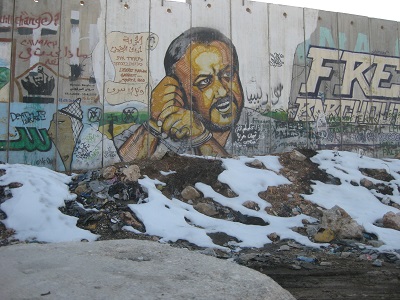
As rumors spread that Mahmoud Abbas could soon step down as Palestinian president, a recent poll reveals that the leader holds support among just 16 percent of the Palestinian public.
Despite the low support rate, a continued decline in trust for the government and political leaders fails to surface any viable contenders for a potential successor, according to a poll carried out by the Jerusalem Media and Communications Center (JMCC) in August.
Imprisoned Fatah leader Marwan Barghouti was the strongest contender for presidential elections, holding 10.5 percent of the vote.
Ismail Haniyeh, PM of the Hamas-run government in the Gaza Strip, trailed close behind Barghouti gaining 9.8 percent support.
Deposed Fatah strongman Mohammed Dahlan was supported by 5.1 percent, and an additional 3.3 percent said they would elect head peace process negotiator Saeb Erekat, the JMCC poll reported.
The apparent absence of a popular successor is underlined by the largest proportion of the poll — the 33.6 percent of Palestinians who said they did not know who they would vote for if new elections were to take place.
The JMCC poll results also revealed that there is “no sympathy for or any noteworthy presence of ISIS or Salafist movements in the Palestinian territories,” with 3.8 percent of participants saying they were sympathetic to the movements.
When asked the question: “How would you define yourself- only in one word- in terms of particular affiliation?”, the majority — 32.4 percent — answered Palestinian, 16.8 percent said Muslim, 6.8 percent said Fatah, and 2.7 percent answered Hamas.
Ineffective but Necessary
Although Palestinians show increasing distrust for their current leadership, JMCC reported that over 70 percent of those polled said that the Palestinian Authority should not be dismantled despite the perceived decrease in the body’s effectiveness.
Almost 60 percent support legislative and presidential elections, which have not been held since 2006 and 2005 respectively.
The results come amid a government reshuffle carried out in June and July– that 44.3 percent of those polled say will make no difference — as well as recent upheaval within the Palestinian Liberation Organization’s executive body.
Last month Abbas resigned as head of the PLO Executive Committee in what critics say is an attempt to empower his allies and marginalize opponents ahead of his eventual retirement.
Several others also stepped down at the time, one of whom being Saeb Erekat who recently took office as secretary-general of the PLO, prompting speculation that he is being lined up to succeed Abbas as president of the PA.
A Palestinian National Council (PNC) meeting is set to be held this month — the first in nearly 20 years — to reelect the Executive Committee, stirring up the latest divisions between political rivals Hamas and Fatah.
The parties failed to implement a national unity deal agreed upon in June 2014, which was signed in effort to pave the way for elections and overcome divisive issues that have separated the two since 2007.
Since the reshuffle — carried out by the Fatah-dominated PLO Executive Committee — and the collective resignations of committee members last month, Hamas has accused Fatah of unilaterally reforming the government.
On Wednesday, Hamas said that the upcoming PNC session was “tearing apart” national unity and amounted to an annulment of all national consensus agreements.
(Ma’an)





